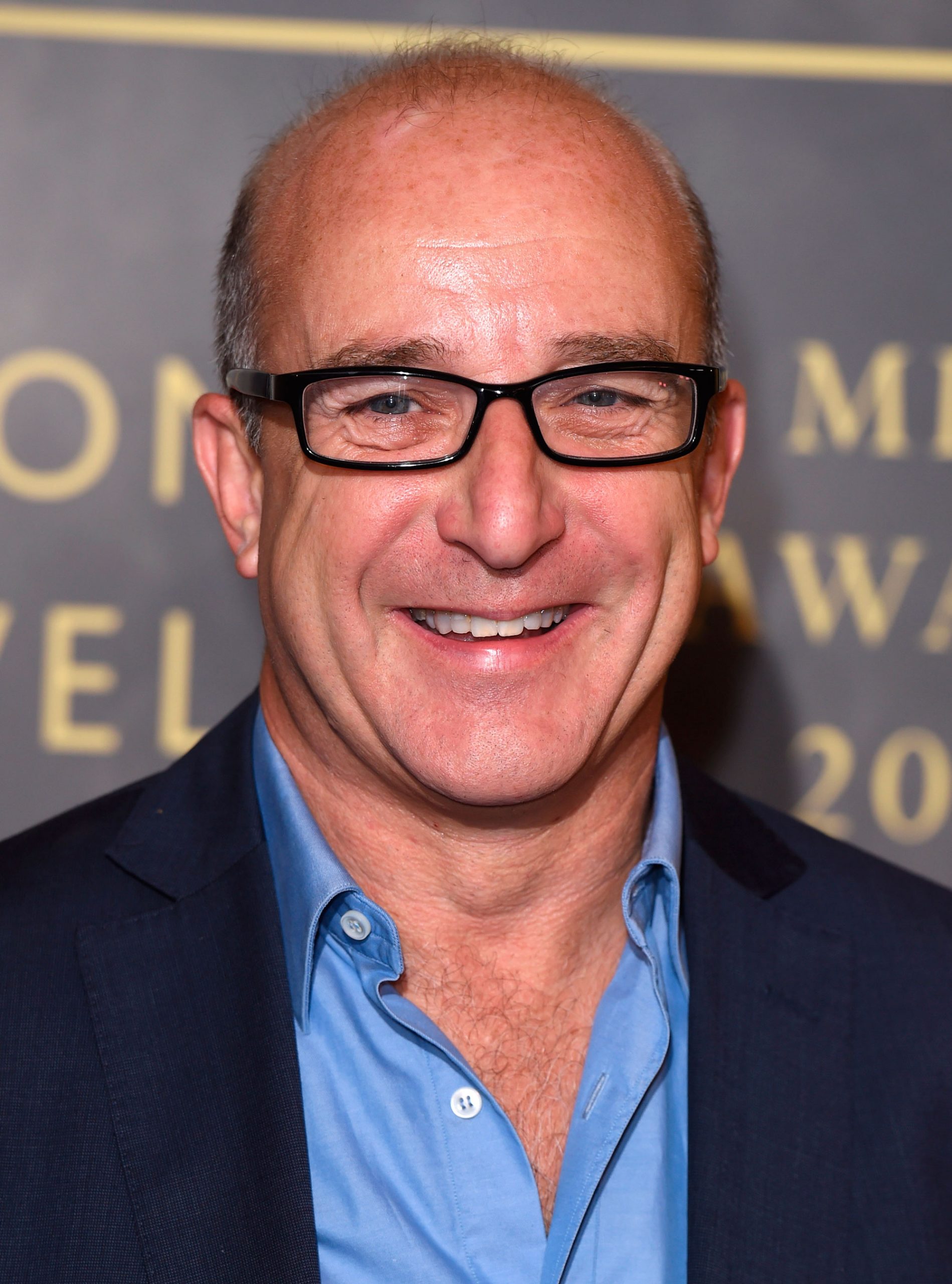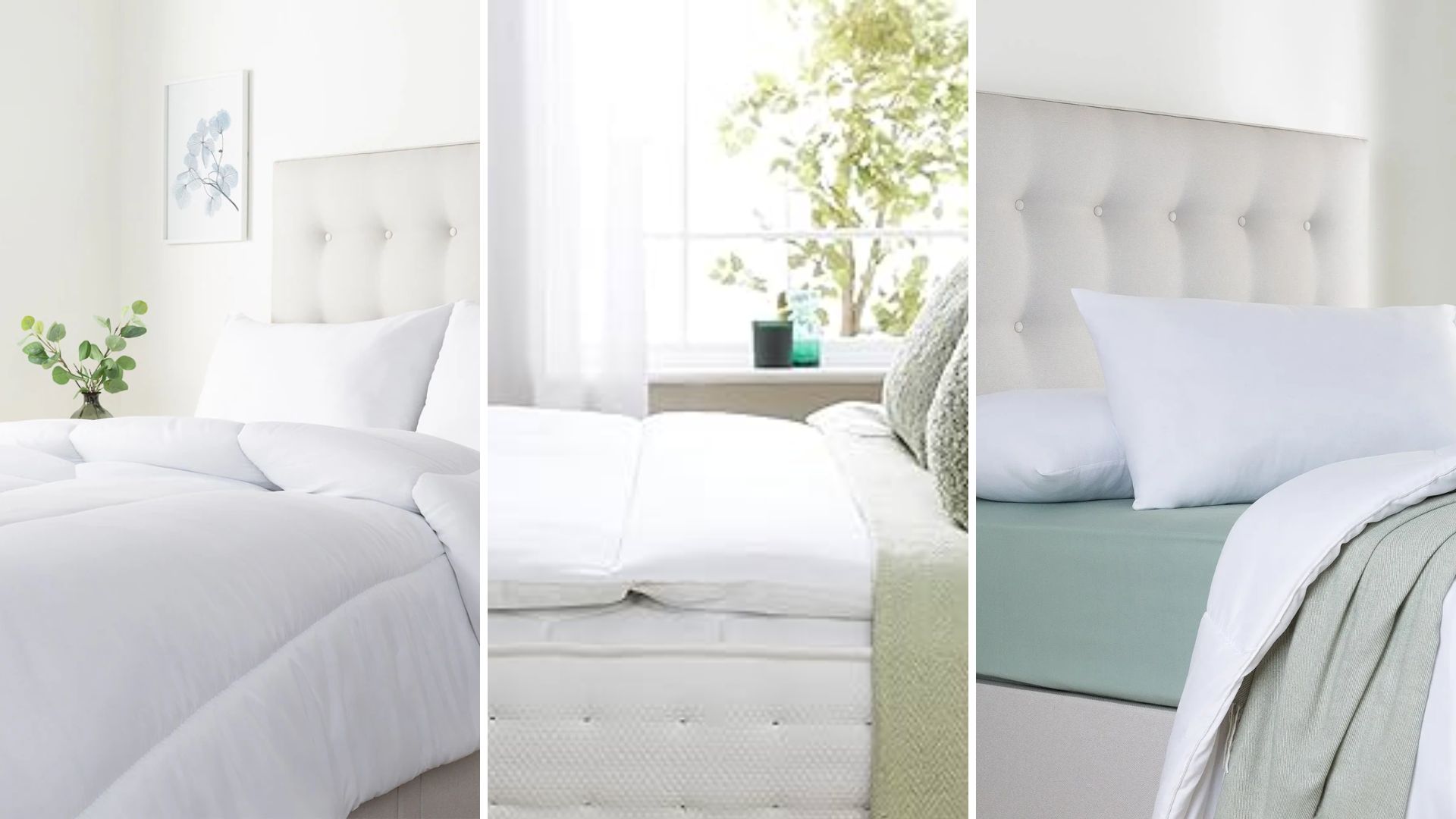Can Paul McKenna Fix YOUR Sugar Addiction?

Writer Polly Dunbar meets hypnotist Paul McKenna, to see if he can put a stop to her sugar cravings...
Here I am, sitting with my eyes closed as Paul McKenna, the world's most famous hypnotist, asks me to imagine how chocolate cake - my favourite indulgence - would taste mixed with cabbage, the food I hate the most.
"As you bite into the cake, mix its flavour with cabbage," he instructs me. "The texture, the taste, is cabbage. And there's some hair in there from the floor. Chew it. Really taste it on your tongue. Now swallow it."
We're sitting in Paul's book-lined study, performing this frankly disgusting exercise, known as The Craving Buster, in a bid to break my sugar addiction. I start my morning with a fix, in my tea and via the peanut butter on my toast, and crave several more throughout the day, feeling tired and irritable if I don't get them. When I'm feeling stressed, I find it impossible to ignore the lure of a slab of cake to help me through - and usually, one leads to more.
I've known for a long time that my addiction isn't doing me any good. I'm not overweight, but I often experience dips in energy and mood, and I'm aware these crashes are the inevitable result of my sugar highs. I've tried to cut down, but my willpower always crumbles.
Paul believes he can help. Over the past two decades, his bestselling books have helped people to quit smoking, lose weight, be more confident and mend broken hearts. Now, he's turned his attention to sugar, a subject he's so passionate about he calls it a "crusade".
He explains that he woke up to the realities of sugar's impact on our bodies during a conversation with Dr Ronald Ruden, a respected US doctor. "I was shocked when he said he believes sugar is the most dangerous drug in the world," says Paul. "I researched it, and I couldn't believe what I found." He found that sugar is implicated in four of the top five causes of premature death in this country. It raises the risk of heart attack, stroke and diabetes, and it accelerates the growth of cancers. It has also been implicated in depression and dementia, and one study suggested it's more addictive than cocaine. "Sugar is hidden in everything from processed foods to breakfast cereals and even savoury sauces," says Paul.
That means I'm far from alone in my dependency on it; the NHS estimates the average person consumes around 140 teaspoons of sugar a week - more than double the recommended amount. Galvanised by his findings, Paul has written his book Get Control Of Sugar Now! It aims to re-pattern our thoughts over the course of seven days, to allow our natural control system to reset itself.
Sign up for the woman&home newsletter
Sign up to our free daily email for the latest royal and entertainment news, interesting opinion, expert advice on styling and beauty trends, and no-nonsense guides to the health and wellness questions you want answered.
Once we're no longer trapped in a cycle of sugar cravings and energy crashes, the next 30 days will be spent cementing the changes into our daily lives. Then, apparently, we'll be able to enjoy the occasional slice of carrot cake or pain au chocolat without feeling controlled by our need for them.
Sounds straightforward, but can it really help me change the way I eat for ever? I meet Paul at his London home so he can take me through the exercises he recommends in the book.
Paul explains how his Craving Buster technique works to combat unwanted thoughts of sweet treats. By closing my eyes and conjuring up the taste of my favourite sugar addiction - chocolate cake - mixed with my least favourite food, cabbage, I feel genuinely nauseated and this feeling sticks. "We're linking the two in your mind, so that when you think of cake, you'll also think of cabbage," says Paul.
He takes me through another technique, which involves imagining being very elderly. Because I've continued to eat too much sugar I'm far from fit and as a result haven't been able to enjoy my life to the fullest. As I concentrate, an image forms and I feel scared.
Then he asks me to conjure an older me again, but having given up excess sugar, I'm healthy and content. Paul asks me to list the things I've achieved that have made my life happy, so I mention loved ones, work success and travel. As I picture myself feeling proud and fulfilled, a sense of contentment envelops me.
While I keep my eyes closed, Paul asks: "What has brought you here to this place? Is it giving up sugar?" and I find myself agreeing it is.
After opening my eyes, I realise how effective this is. Even though I realise giving up sugar isn't necessarily going to give me everything I want in life, linking the two in my mind is far better motivation than willpower alone. When I leave Paul, I feel determined to stick to my resolution to go seven days without succumbing to temptation.
'How I went sugar free' - week 1
- DAY 1 - I almost put sugar in my tea, but catch myself. It tastes bitter, and porridge is bland, but I make it through the day.
- DAY 2 - I feel tired, but when a birthday cake is passed around the office, I think about the taste of cabbage and decline.
- DAY 3 - I slip up when I eat a chocolate digestive. It tastes too sweet, and I don't enjoy it, so I vow not to give in again.
- DAY 4 - The next time I feel tempted, I imagine myself soon, feeling happy. The image gives me a boost and I eat a few almonds instead of a biscuit.
- DAY 5 - I look at labels on ready-meals and notice how many contain sugar. The easiest way to avoid them is to eat home-cooked food, so I freeze batches of chilli for when I need a fast dinner.
- DAY 6 - I write a journal of what I'm eating, the times I'm tempted and the techniques I find helpful, as Paul advises. It makes me more aware of the link between my moods and my eating habits.
- DAY 7 - I've got used to the taste of my tea and porridge, and my cravings are virtually gone. My skin looks clearer and my energy levels are more stable.
- VERDICT - Amazingly, it seems to have made a difference in just a week
How to cut the sugar
- 1. Think of a sugary food you feel out of control around, and imagine eating it mixed with the food you find most disgusting. Imagine chewing it and swallowing. Do this whenever a craving strikes.
- 2. Imagine yourself at the end of your life. You've continued eating a lot of sugar and you're ill. Think about what advice the sick, older you would give you now. Then picture yourself as elderly having controlled your sugar intake. You've lived a long, healthy life because you made that change.
- 3. To defend against adverts for sugary foods and drinks, when you see one, recast the slim, beautiful people in it with the overweight, unhealthy people they'd be if they regularly ate or drank the product.
- 4. Spend a week "sugar spotting" by checking food labels for words like sucrose, dextrose, fructose and saccharose and noting down when you see them. Soon you'll be aware of just how much sugar is all around us.
- 5. Keep a journal for a week of the times and places you were tempted to eat sugar. For the top five, design a small change to your routine - for example, if you normally have an orange juice with breakfast, change the time you have breakfast. These small changes disrupt our usual patterns of behaviour and help us form new ones.
The book and CD Get Control of Sugar Now! (Bantam Press) £12.99, is out now; paulmckenna.com/books
Polly Dunbar is a London-based freelance journalist who has written for publications including the Mail on Sunday, the Telegraph, Stylist and Marie Claire. As well as freelancing as a writer Polly is also a contributing editor for Grazia.
-
 How to charm your in-laws: the ultimate guide to keeping the peace
How to charm your in-laws: the ultimate guide to keeping the peaceDiscover how to strengthen your in-law relationships, one thoughtful gesture at a time
By Natalie Denton Published
-
 Aldi's affordable bedding is actually made by my favourite sleep brand - it's got more than your duvet covered
Aldi's affordable bedding is actually made by my favourite sleep brand - it's got more than your duvet coveredAldi's Anti-Allergy Bedding has arrived in the middle aisle and it's more affordable than the best mattress toppers, duvets, and mattress protectors out there
By Laura Honey Published